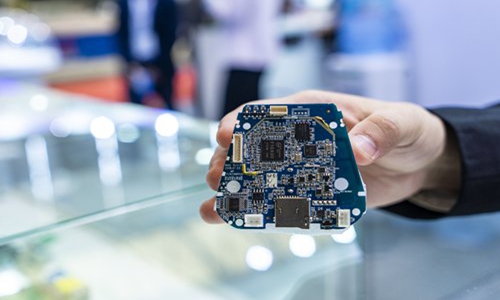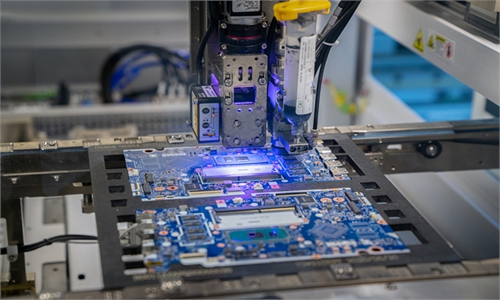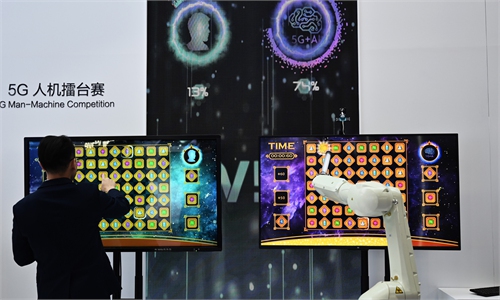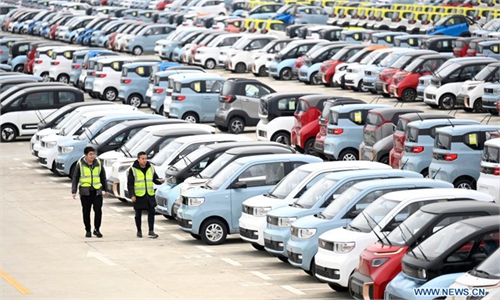
An employee showcases a semiconductor integrated circuit at an industry expo. File photo: VCG
China has issued a notice on Monday, exempting taxes on imports of a number of semiconductor companies that are critical to the country's integrated circuit (IC) development, including IC production equipment parts, raw materials and other consumables.An analyst said this is part of a set of policies to spark domestic IC companies' activity to advance cutting-edge innovations to resolve growth bottlenecks, and more favorable policies in introducing talent could follow.
The policy will date back to imports from July 27, 2020 and last until December 31, 2030. Companies that are qualified for tax exemptions will receive a refund within 30 days after the exemption list is released.
According to the notice, Chinese IC and memory chip producers which manufacture chips below 65nm in width, and IC producers which specialize in special process such as simulation and radio frequency, are entitled to tax exemption when importing raw materials, consumables, special building materials for purification room, accompany system and IC production equipment parts that domestic producers are not able to supply or the performance of domestic products cannot meet demand.
Some other IC companies are also qualified for the tax exemption when importing raw materials and consumables that home market cannot supply.
Those enterprises include IC producers as well as advanced packaging and testing enterprises whose IC lines' width were below 0.5 micrometer, and suppliers of IC industry's key materials and parts, such as target materials, photoresist, silicon single crystal and silicon wafer that are above 8 inches.
The new policy is jointly issued by China's Ministry of Finance, the General Administration of Customs and the State Administration of Taxation, as part of the efforts to speed up the building of self-sufficiency chip technologies - which is caught in the forefront of a boiling tech war between the world's two largest economies.
The key materials and parts listed in the notice will adjust in a timely manner, according to the notice.
China has planned to produce 40 percent of the chips it consumes by 2020, and the ratio is expected to further raise to 70 percent by 2025.
Ma Jihua, a Beijing-based industry analyst, told Global Times on Monday that companies along the industry chain such as Semiconductor Manufacturing International Corp (SMIC) and terminal products manufacturers like Huawei and Xiaomi will benefit from the new policy.
"In the upcoming months, other related policies to reduce IC enterprises' research and development (R&D) cost like more tax cuts and favorable policies to introduce talent are expected to come out," Ma said.
However, he warned that the domestic IC industry should be sober that only through long-term investment in R&D can the whole industry achieve self-reliance and eventually break other countries' control.



